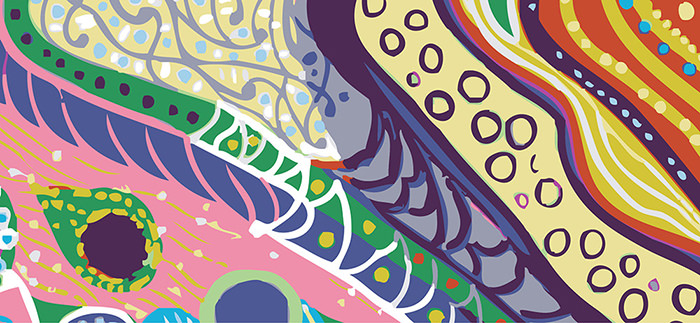 What is macroeconomics?
What is macroeconomics?  Feminist economics
Feminist economics 
Conventional theories of macroeconomics
Conventional macroeconomic theories tell us that economic decisions are based on the following assumptions:
- resources are always scarce/limited
- individuals are selfish
- competition is a necessary driver for success
These are all capitalist1Capitalism is an economic and political system which emerged in Western Europe and replaced the earlier system of feudalism. At its core, ‘capitalism’ can be defined by private ownership of the means of production (or means necessary for production, such as capital, land, machines etc.) and polarisation of societies into two dominant classes: capitalists (those who own the means of production) and workers (those who have no ownership/control over the means of production and therefore have to sell their labour to the capitalists for a wage in order to survive). Through imperialism, colonialism, and other forms of domination, capitalism has expanded to the rest of the world. economic theories that focus on efficiency of the markets and growth. The ultimate beneficiaries and political intentions of these theories are often hidden or obscured behind numbers, equations, and scientific or technical language.
- Classical Economics: Classical economic theory originated at the beginning of the 18th century. Its main principles were popularised by Adam Smith, David Ricardo, and Jean Baptiste Say. Classical economists argue that the market is self-regulating. This main principle is sometimes referred to as ‘laissez-faire’ (‘let do’ in French) capitalism, which emphasises that market(s) should be free from any government intervention.
- Keynesian Theory of Economics: John Maynard Keynes wrote The General Theory of Employment, Interest, and Money in 1936 during the Great Depression, a phenomenon which the classical economists failed to explain. Keynes opposed the idea of a self-correcting market and argued that markets are not perfect, thus they need government intervention. One of the main principles of Keynesianism is increasing government expenditure through public works (e.g., infrastructure projects) and investments. Especially post-1945, Keynesian principles became dominant in economic policies, and welfare expenditure (such as free education, healthcare, infrastructure, and housing) increased significantly in the US and Western Europe. With its emphasis on welfare and government regulations, this model can also be thought of as a compromise in classical economics, as it was trying to counter the emergence of Marxist2Marxism is a political theory, initially formulated by Karl Marx and Friedrich Engels during the 19th century and developed by their followers until today. Marx criticised capitalism, as he believed that it is an inherently unequal system, based on the exploitation of the masses for the benefit of a few. Marx’s critique of capitalism and his ideal of communism, as a truly egalitarian society that would eventually replace capitalism, has been an inspiration for many revolutions, progressive social movements and resistance throughout the world. To explore feminist Marxist theory and the role of caring work in the economy, we recommend Silvia Federici’s Revolution at Point Zero: Housework, Reproduction, and Feminist Struggle, 2nd Edition, available online under the Creative Commons Attribution-NonCommercial-ShareAlike 3.0 Unported Licence. economic ideas due to their Soviet influence.
- Neoclassical Economics: This approach was developed in the early 1900s, building on classical economics theory. In its conception, neoclassical economics emphasises the scarcity of resources. According to this model, all the actors involved in economic transactions (individuals or firms) are rational actors who make rational decisions. The neoclassical economics theory maintains that individuals make rational choices to maximise utility, and firms make them to maximise profits. This model has laid the foundation for the neoliberal capitalist economic system in which we now live.
 What is macroeconomics?
What is macroeconomics?  Feminist economics
Feminist economics 
Footnotes
- 1Capitalism is an economic and political system which emerged in Western Europe and replaced the earlier system of feudalism. At its core, ‘capitalism’ can be defined by private ownership of the means of production (or means necessary for production, such as capital, land, machines etc.) and polarisation of societies into two dominant classes: capitalists (those who own the means of production) and workers (those who have no ownership/control over the means of production and therefore have to sell their labour to the capitalists for a wage in order to survive). Through imperialism, colonialism, and other forms of domination, capitalism has expanded to the rest of the world.
- 2Marxism is a political theory, initially formulated by Karl Marx and Friedrich Engels during the 19th century and developed by their followers until today. Marx criticised capitalism, as he believed that it is an inherently unequal system, based on the exploitation of the masses for the benefit of a few. Marx’s critique of capitalism and his ideal of communism, as a truly egalitarian society that would eventually replace capitalism, has been an inspiration for many revolutions, progressive social movements and resistance throughout the world. To explore feminist Marxist theory and the role of caring work in the economy, we recommend Silvia Federici’s Revolution at Point Zero: Housework, Reproduction, and Feminist Struggle, 2nd Edition, available online under the Creative Commons Attribution-NonCommercial-ShareAlike 3.0 Unported Licence.

